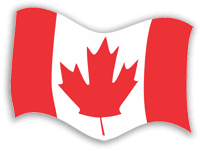|
Late on an August evening in 1939, Canadian Prime Minister
William Lyon Mackenzie King was contemplating a peaceful night’s
sleep. Before going to bed, he turned on the radio. The
international news had been worrying, and King knew that it had
profound implications for a country so closely linked to Great
Britain and its empire.
What the prime minister heard was surprising. Adolf Hitler’s
Nazi Germany and the Communist Soviet Union, natural
adversaries, had signed an agreement not to go to war against
one another. The infamous Nazi-Soviet pact cleared the way for
Hitler’s attack on Poland a week later.
Responding to Hitler’s aggression against Poland, Britain and
France declared war on Germany, and the Second World War in
Europe began. Canada entered the conflict on September 10, after
King received the nearly unanimous approval of Parliament.
Canadians made their own choice in September 1939, but they
would not have gone to war if Great Britain had not done so
first. Three quarters of a century after the colonies of British
North America had become the nation of Canada, the affection for
and ties to the mother country remained strong. Fully half of
the Canadian people were of British stock; English, Irish, Welsh
and Scottish immigrants populated Canada’s vast lands in the
millions. Anglo-Canadian cultural and economic links were a
vital part of Canadian society and prosperity. The Canadian
military patterned itself on the British forces.
Canadians also knew, instinctively, that their British world
offset the potent influences coming from the United States,
Canada’s close neighbour and friend, but also its rival. King
proudly called Canada the Britain of the West. If Canada ever
lost its trans-Atlantic associations, he worried, the country
would amount to little more than another state of the United
States.
The importance of the British connection to Canadians was
vividly demonstrated by the rapturous welcome given King George
VI and Queen Elizabeth when they visited Canada in the late
spring of 1939.
The royal tour began in Quebec City where 60,000 people
assembled on the Plains of Abraham overlooking the St. Lawrence
River, and thousands of children sang Dieu sauve le roi and O
Canada. The King and Queen’s distinctive silver and blue train
took them on from there to Trois-Rivières. They stayed only 15
minutes, but a crowd of 80,000 applauded in wave after wave.
Then they came to Montreal. A million spectators lined the route
into the city. Children dressed in the red, white, and blue of
the British flag, and chants of Vive le roi and Vive la reine
rose up. After a lavish dinner, presided over by Mayor Camillien
Houde, the royal couple stepped out onto a floodlit balcony over
Dominion Square, where 100,000 people waited. There were loud
cheers, and a sudden silence before the multitude broke out in
song with an emotional God Save the King.
The reverence shown the King and Queen in Quebec was good news
to King. He kept a close watch on the province, the home of a
substantial French-speaking population that was traditionally
suspicious of allegiances and commitments outside of Canada’s
shores. A good part of King’s parliamentary support was from
Quebec, and his closest political ally was Ernest Lapointe, the
francophone minister of justice.
From the time when he first became prime minister in 1921, King
set out to assure Canadians and Quebecers that the country’s
future would be determined by them alone. King’s Canada signed
its own treaties, built a professional foreign affairs
department, and established diplomatic relations with the United
States, France and Japan.
Yet King had also promised the British privately that Canada
would be at their side if they were again threatened, as they
had been in the First World War. When that moment came, it was
Lapointe who told Parliament and Canadians that the ties to
Britain were too powerful to ignore.
From 1939 to 1945, Canada contributed an armed force of over a
million men and women to the allied cause in the Second World
War, accompanied by impressive contributions of money,
munitions, and food. Yet the war that took hundreds of thousands
of Canadians overseas to protect Britain increased the distance
between the two countries.
Although Canadians did not always realize it, they had been
building an independent Canada and an independent foreign
policy. The country emerged from the conflict confident,
unified, economically strong, and prepared to take on
international responsibility. The British were meanwhile weaker,
noticeably so.
After the Second World War, Canada’s British world slowly faded
away. Canadians acquired their own citizenship, flag, and
constitution, and began to think of themselves as a modern and
progressive people far from their historic roots.
Norman Hillmer is Professor of History and International Affairs
at Carleton University. Readers can find an account of Canada’s
ties to Britain in Norman Hillmer and J. L. Granatstein, Empire
to Umpire: Canada and the World into the Twenty-First Century
(Toronto: Thomson Nelson, 2007).
Next Instalment: The Myth of the Undefended Border
The Canadian Experience is a 52-week
history series designed to tell the story of our country to all
Canadians. Sponsored by Multimedia Nova Corporation and
Diversity Media Services partners, the series features articles
by our country’s foremost historians on a wide range of topics.
Past articles and author bios are available at
http://www.cdnexperience.ca. The Canadian
Experience is copyright ©2010-2011 Multimedia Nova
Corporation. |
List of
published "Canadian Experience" articles |
 #40 Canada’s British World
#40 Canada’s British World
